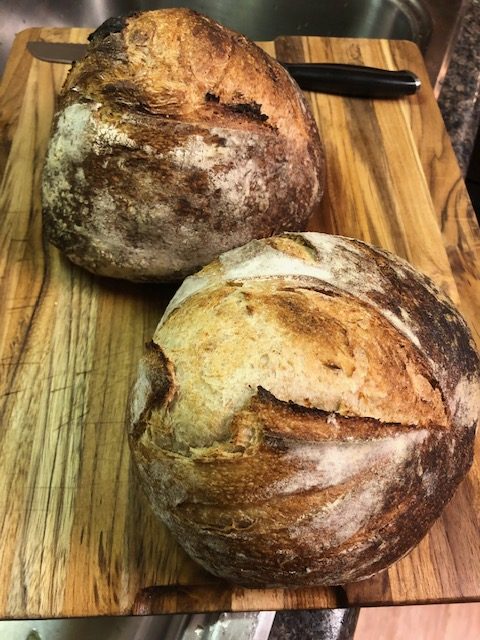It’s time to finish this series of posts about Sabbath! My desire is to write a little about the books I’m reading (in our Master’s program and my own reading list) as a way to process what I’m learning and also give you a taste in case you might want to read the book as well. I’d only planned to write one post about about this book, “Dwell, Life with God for the World” by Barry D Jones, and it was difficult to pick one topic/ chapter- and then impossible to fit it into one post! I highly recommend this book- I found it encouraging, enlightening, convicting and helpful in my walk as a disciple of Jesus.
Barry ends the chapter “Shabbat Shalom” with his family’s experience of honoring Sabbath, admitting that they are still growing into this and learning how to do it well. Due to the fact he is a pastor (Sundays being a busy work day for him), they typically observe Sabbath from Friday evening (beginning with a nice dinner) and end Saturday evening. He says, “We’re not rigid or legalistic about our observance of the Sabbath, but we have chosen to prioritize engaging rest, delight and connection and disengaging productivity, commerce and technology. I agree with him that the practice is more important than the day of the week it’s observed.

Regarding rest, Barry writes, “To enter Sabbath rest is not to do nothing. Rest in this rich sense does not necessarily imply a cessation of all activity. It is instead to enter into flourishing, to engage the things that give us life, that stir our souls, that help us thrive as the kind of being God has created us to be. It is to set aside achieving and to simply enjoy being. To enter into Sabbath rest is to inhabit time differently. It is to let go of the need to watch the clock, to move a bit more slowly through the day, to pay more attention to what’s happening around us and with us then “fast life” usually allows.” For me this would include a leisurely quite time with God and a journal, a long walk or hike in a beautiful place to enjoy God’s creation, an enjoyable meal with family and friends – I’m working on making the cooking process fun and relaxing as well (music, wine, good conversation with kitchen helpers), enjoying a good book on the porch or in a hammock, long phone call with a friend of family member, walking through my garden (to enjoy it, not work), motorcycle ride with my husband, a rare nap if I’m tired. I find a mostly unplanned day where I’m free to do what feels refreshing and life giving is delightful beyond anything I can orchestrate. And they often feel longer than the usual rushed work days. We will all differ on what is life giving and refreshing, but some common elements will be fellowship with God and loved ones, a relaxed pace, peace, joy and physical rest.

Engaging delight was a new concept to me. “To flourish as the kinds of beings God made us to be is to experience the beauty and goodness of life and creation with all the power of our senses…. God intends the goodness and beauty in creation to culture and stir our affections for him. He shines in all that’s fair.” Barry quotes Norman Wirzba, “The attraction of many forms of entertainment… is they give us release or escape from life, whereas the experience of delight follows from a deeper immersion and affirmation of it.” (from the book “Living the Sabbath”) Barry adds, “We often settle for shallow facsimiles of delight that come easily to us rather than giving ourselves to the effort it takes to find what brings us true delight.” For his family, this attention to detail includes flowers on the table, nice dishes, favorite foods shared with friends, good coffee, special dessert, being unrushed and fully present.
Engaging delight naturally segues into the idea of engaging connection- with God, our family and friends. He quotes Augustine, “Good human beings seem even in this life to provide no small consolation. For, if poverty pinches, if grief saddens, if bodily pain disturbs, if exile discourages, if any other disaster torments, provided there are present human beings who not only know how to rejoice with those in joy, but also to weep with those who weep (Rom 12:15) and can speak and converse in a helpful way, those rough spots are smoothed, the heavy burdens are lightened, and adversity is overcome.” I find pure pleasure in an unrushed, delish dinner or dessert with my family and friends that is enjoyed with uplifting conversation and the sharing of our hearts. These are the “thin moments” where heaven and earth are almost touching.

Disengaging productivity has been a challenge for me, especially when I had a large, young family to care for. Barry writes, “For many of us, accomplishment and productivity have become more than the means of our livelihood and have instead become the meaning of our lives. Achievement, success, accolades and advancement have become some of the most persistent yet most subtle idols to which we turn, broken cisterns we run back to time and again. And the idols are no less pernicious than those Israel stubbornly ran after. They are just more tasteful and discreet.” “To enter into Sabbath rest is an act of repentance and faith. It is a means by which we practice the reality that we are truly beggars, that we know ourselves to be created and sustained by the grace of God rather than our own strength and ingenuity. This requires that we repent of the idolatry of productivity. It requires that we acknowledge that we are more than what we do, that our identity is greater than the sum of our accomplishments, and that our security is not found in the strength of our own hands. To cease strive- to relinquish achieving and embrace being- is an act of faith.”
Disengaging commerce. “Sabbath is a weekly rhythm through which we learn to extricate ourselves for the pervasiveness and power of consumerism. As Walter Brueggemann has perceptively put it, consumerism operates on the claim that “’more is better’, that ‘most’ will make happy, and that each is entitled to and mush have all that each can take, even at the expense of others. Like productivity, consumption has become one of the more persistent of the tasteful, discreet idols of our day. Rather than consuming to live, we’re increasingly living to consume, finding our sense of self in the things we acquire or the ability to acquire things.” “Sabbath keeping helps us to curb this sense of dissatisfaction that all too easily grips our hearts. It is a once-a-week, twenty-four-hour consumer detox. It helps us practice gratitude and contentment, the bitter enemies of consumerism. It teaches us to delight more in people than in things, in creation rather than consumption and, ultimately, to delight in God and rest our identity in him.” Wow. I’ve been chewing on this.
Finally, Barry shares how his family has decided to disengage technology. “Arthur Paul Boers has perceptively observed that ‘when we allow devices and machines to reside at the center of our lives, we displace values and practices that once enriched the quality of how we live. We end up serving our gadgets instead of using them as tools to support our priorities.’ Recognizing the way this pattern was playing out in the life of my own family played a large part in our decision to disengage technology as a crucial part of our Sabbath observance.” This is quite challenging for me and my family and we are still working on how to set aside phones. It’s a worthy struggle though, and I want to get better at being present in general, not just one day a week.
I hope these ideas and quotes encouraged you and gave you some food for thought. Shabbat shalom (Sabbath peach) to you, my friends. May we each “relish the fleeting glimpses of the rest, delight and connection we were created to enjoy and now wait for in hope.”


Using electronics to connect with family is using it for connection.
true, that works for our family far away- but a distraction from those right in front of us.